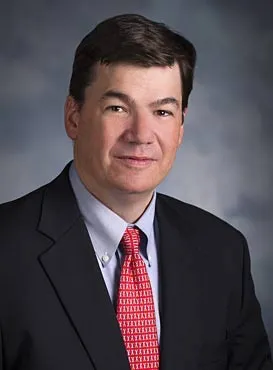
Non-compete agreements have long been a hotly debated issue in Texas employment law, particularly in the healthcare industry. These agreements, designed to prevent employees from leaving a practice and immediately competing against their former employer, often intersect with patient care, physician rights, and business interests. With recent reforms to Texas non-compete law, San Antonio healthcare employers need to understand how the changes affect their contracts and compliance obligations.
At The Galo Law Firm, we counsel employers and professionals across Texas on drafting, enforcing, and challenging non-compete agreements. If you operate a healthcare practice in San Antonio, staying informed about these legal developments is imperative to protecting your business while respecting employee rights. Contact us at (210) 764-6135 for help in these critical matters.
Non-Compete Agreements in Texas: The Basics

Texas is generally considered more employer-friendly than many states when it comes to enforcing restrictive covenants. Under the Texas Business and Commerce Code § 15.50, non-compete agreements are enforceable if they are:
- Ancillary to an otherwise enforceable agreement; and
- Reasonable in scope with respect to time, geographic area, and activities restricted.
For healthcare providers, such as physicians, nurses, and specialists, the stakes are higher. Non-compete agreements in this industry must strike a balance between legitimate business interests, patient access to care, and public policy concerns. That balance has led to the development of unique statutory provisions and reforms in Texas.
Special Rules for Physicians in Texas
Texas law treats physician non-compete agreements differently from other industries. Employers may include restrictive covenants in physician employment contracts, but the agreement must meet additional requirements, including:
- Allowing access to a list of patients seen or treated within the last year.
- Allowing patients to continue treatment with the physician under certain circumstances.
- Providing a buyout option that allows the physician to purchase their way out of the restriction for a reasonable price.
These safeguards exist because Texas courts recognize that restricting physician mobility can impact patient continuity of care.
Recent Non-Compete Reform Efforts
In recent years, both Texas lawmakers and federal regulators have scrutinized non-compete agreements across industries, with healthcare being a primary focus. Reform discussions have centered around:
- Patient Choice: Ensuring patients can continue seeing their preferred physician, especially in areas with provider shortages.
- Provider Fairness: Preventing non-competes from unreasonably limiting healthcare professionals’ career opportunities.
- Employer Interests: Protecting practices that invest heavily in building patient bases and training providers.
While Texas has not banned non-competes altogether, reforms continue to evolve. San Antonio healthcare employers should expect heightened enforcement scrutiny and potential future legislation aimed at narrowing the scope of allowable restrictions.
How Reform Impacts San Antonio Healthcare Employers
For healthcare practices and hospitals in San Antonio, recent non-compete reform highlights the need to revisit existing contracts and policies. Here’s what employers should consider:
Patient Access and Continuity of Care
Contracts that fail to allow reasonable patient choice may not withstand legal scrutiny. Employers must ensure agreements respect patient relationships, especially when patients require ongoing care.
Buyout Provisions
Employers must set buyout clauses at reasonable values. Inflated buyout amounts are likely to be challenged in court. Reasonableness will depend on factors such as the physician’s patient base, length of employment, and market conditions in San Antonio.
Geographic Restrictions
San Antonio is a large and diverse metropolitan area. Overly broad geographic restrictions—such as preventing a physician from practicing anywhere in South Texas—may be struck down. Courts typically look for restrictions tied to the actual service area of the practice.
Time Limits
Restrictions lasting longer than two years are often considered unreasonable. Employers should carefully calibrate the duration of non-competes to align with legitimate business interests.
Drafting Enforceable Non-Compete Agreements After Reform
Employers seeking to protect their practices while complying with Texas law should focus on crafting agreements that are narrow, precise, and fair. Key strategies include:
- Tailoring Restrictions: Define geographic limits based on where the practice actually draws patients.
- Focusing on Legitimate Interests: Restrict only what is necessary to protect confidential information, trade secrets, and patient goodwill.
- Providing Consideration: Ensure the non-compete is part of a broader enforceable agreement, such as employment with compensation or access to proprietary resources.
- Including Buyout Options: For physicians, include buyout clauses that reflect fair market value rather than punitive sums.
- Reviewing Annually: Revisit agreements regularly to ensure compliance with evolving laws and market conditions.
Common Disputes Over Healthcare Non-Competes
Disputes often arise when physicians or other providers leave a practice and begin working for a competitor in San Antonio. Common issues include:
- Overly Broad Restrictions: Courts may strike down contracts that restrict more territory than the employer actually serves.
- Unreasonable Buyouts: Disagreements often arise over the valuation of buyout clauses.
- Patient Notification Rights: Physicians have the right to inform patients of their departure. Employers that attempt to prevent this may face legal challenges.
- Retaliation or Enforcement Tactics: Aggressive enforcement without legal merit can backfire on employers and lead to counterclaims.
Employers must carefully evaluate whether pursuing enforcement is worth the potential costs, reputational harm, and patient dissatisfaction.
Best Practices for San Antonio Healthcare Employers
To protect your practice while staying compliant with Texas non-compete reform, consider the following best practices:
- Work With Legal Counsel: Partner with an experienced San Antonio employment lawyer who understands both Texas law and healthcare-specific regulations.
- Use Clear Language: Avoid vague or overly broad contract terms that invite disputes.
- Protect What Matters Most: Focus restrictions on patient lists, proprietary data, and direct competitors rather than imposing blanket bans.
- Educate Employees: Discuss the terms of non-competes openly with physicians and staff so expectations are clear.
- Be Prepared to Negotiate: Courts favor reasonable, balanced agreements. Employers who negotiate fairly are more likely to have enforceable contracts.
The Role of Courts and Enforcement Trends
Texas courts generally enforce non-compete agreements when they are narrowly drawn and supported by legitimate business reasons. However, judges are increasingly skeptical of restrictive covenants that interfere with patient access or professional mobility.
San Antonio employers should anticipate that disputes will be resolved on a case-by-case basis, with courts closely examining geographic scope, duration, and buyout provisions. Employers who fail to align with these evolving standards risk losing enforcement battles.
Why Employers Should Act Now
Even if your existing contracts appear enforceable, recent reforms make it important to revisit them. By updating agreements now, you can avoid costly litigation later. More importantly, compliance demonstrates to employees and patients that your practice values fairness and transparency.
At The Galo Law Firm, we assist San Antonio healthcare employers in drafting, revising, and enforcing non-compete agreements that withstand legal scrutiny. Our attorneys also represent employers in disputes, whether through negotiation, mediation, or litigation.
Questions about Non-Compete Agreements in Texas? Contact The Galo Law Firm Today
Texas non-compete reform is reshaping the legal landscape for healthcare providers and employers. For San Antonio medical practices, hospitals, and clinics, this means carefully balancing business interests with the rights of providers and the needs of patients. By drafting reasonable agreements and staying informed about the latest developments, employers can protect their practices without running afoul of the law.If you are a healthcare employer in San Antonio and have questions about non-compete agreements, call us at (210) 764-6135 or contact us online to schedule a consultation with the San Antonio employment attorneys at The Galo Law Firm.
